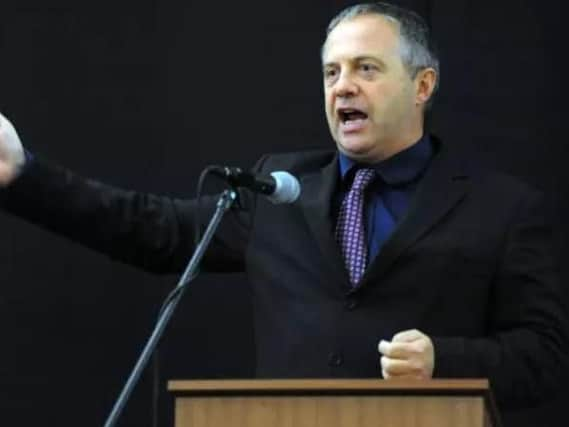No deal means everyone has less money - not more


The answer of course is that nobody can be sure what will happen.
Writers to this newspaper praise a World Trade Organisation (WTO) deal and even challenged where I got my information from?
From the WTO, that’s where.
Advertisement
Advertisement
Currently run by the Japanese, it sets strict rules and to get goods or services over a border to another country and there is nowhere in the world where countries do not need a trade deal.
The WTO is a trade deal and the deal is that countries pay tariffs – taxes at the border – for goods that come into the country.
For some foods it is as high as 45 per cent, for cars it is more than ten per cent.
So a no deal means that you will be paying more.
Now, many people are relaxed about paying more for the meat, dairy products and cars.
Advertisement
Advertisement
It is my job to make sure there are no nasty surprises for you and your family and I will continue to do so.
When Britain voted to leave the EU, I made clear in this paper and in the debates that we would all have to bite the bullet on a number of issues.
To remind you of some, there are no guarantees over property abroad.
A no deal means no deal on property rights.
Advertisement
Advertisement
There will be major issues for horse racing immediately, don’t expect to take your dog abroad and do not presume that you insurance is valid abroad, because it might well not be.
This is simple, sensible advice.
Will there be food shortages? No, but some products will be in short supply.
It is best summed up by thinking about the fact that nothing much gets into this country if the French play up in Calais.
You have to decide for yourself how likely it is that French politicians, farmers or fishermen will choose to blockade Calais or go on strike to close the port
If they do, then nothing gets through.
Advertisement
Advertisement
Under no deal, it is a fact that we are at the mercy of the French and I for one do not think this is a good idea.
My view remains consistent.
I voted for the deal that had been agreed, which if others had would mean Britain would have left the EU four months ago.
The numbers in Parliament are clear – enough to block Brexit.
Advertisement
Advertisement
I will not be party to refusing to implement the decision of the referendum.
But neither will I ever mislead people about the implications of what is decided.
My message to the new Prime Minister is to go and negotiate a deal, that keeps Britain’s trade going without increased taxes on us through tariffs.